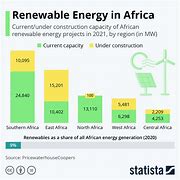As the world transitions towards renewable energy sources, the role of Battery Energy Storage Systems (BESS) becomes increasingly crucial. In Africa, where sustainable energy solutions are gaining momentum, experts like Gabriel Pako Isaacs from Botswana Power Corporation emphasize the necessity of implementing appropriate policies and regulations to govern the deployment of BESS effectively.
Isaacs highlights the significance of having
“the right policies and codes in place for BESS”
to ensure safe and efficient utilization across the continent. He underlines that beyond reaping the benefits of energy storage, it is essential to mitigate potential risks by incorporating measures such as proper zoning in urban areas. As reported by ESI Africa, Isaacs stresses that these policies should aim not only at maximizing capacity but also at minimizing negative impacts on communities and fostering technology adoption.
Speaking at Enlit Africa 2025, Isaacs draws attention to the importance of education and training in preparing future generations for managing BESS. He advocates for integrating maintenance, care, and recycling practices into technical and vocational school curricula to equip young learners with essential skills needed for sustainable energy practices. Isaacs believes that investing in education will lay a solid foundation for responsible battery usage throughout Africa.
Isaacs further delves into the longevity of batteries used in energy storage systems, highlighting the potential for community-oriented recycling initiatives. He proposes incentivizing battery recycling programs based on life cycle assessments ranging from 10 to 20 years. By reusing or refurbishing materials from decommissioned batteries, African communities can establish circular economies that promote environmental sustainability while meeting their energy needs efficiently.
In discussing Africa’s unique position regarding battery requirements compared to other regions, Isaacs underscores the long-term outlook necessary when planning BESS infrastructure. He emphasizes that adopting comprehensive end-of-life strategies and promoting material reuse can lead to community-driven solutions that enhance resource efficiency and support economic development across the continent.
The insights shared by Gabriel Pako Isaacs shed light on the multifaceted considerations involved in implementing effective policies for Battery Energy Storage Systems in Africa. His vision encompasses not only technological advancements but also social responsibility and environmental stewardship—an integrated approach crucial for shaping a sustainable energy landscape on the continent.
As reported by www.esi-africa.com
—
Source: [www.esi-africa.com](https://www.esi-africa.com/industry-sectors/future-energy/the-need-for-right-policies-for-bess-in-africa/)









Leave feedback about this